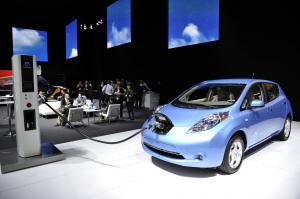April 23 (UPI) — Japanese energy company Marubeni Corp. said it would work in the U.S. market to deliver ultra-fast charging stations for electric vehicles.
The company said it was working through its U.S. subsidiary, a division of Volkswagen and Electrify America LLC on a $2 billion investment in electric vehicle infrastructure. Under the terms of the arrangement, Marubeni said it would collaborate with charging infrastructure company Signet EV to build 340 charging stations in the U.S. market.
Charging stations envisioned in the program will be seven times faster than conventional charging stations, though some of that speed would depend on the vehicle.
“As these chargers will be located in convenient places like highways we can help reduce charging anxiety, increase the number of EV users and contribute to a more carbon-free society,” the Japanese company said in a statement on Monday.
Electrify America last week picked key suppliers to deploy more than 2,000 fast charging stations that would offer up to 20 miles of range per minute.
The U.S. Energy Department’s National Renewable Energy Laboratory estimates there are around 40,000 actual plugs available nation-wide for electric vehicles. That number supports the more than 500,000 plug-ins on the road in the United States, which accounts for about a quarter of the global market.
A February report from The University of Michigan’s Transportation Research Institute found both battery-powered and plug-in hybrids are at the point where they’re capable of meeting the daily travel needs of most U.S. drivers. Recent improvements in range and charging times, their report read, has led to wider acceptance and reduced range anxiety already.
British energy company BP reported in an annual forecast that it expected 180 million electric vehicles on the world’s roads by 2035. That’s expected to crimp global oil demand in the coming years as about 30 percent of total miles driven in 2040 will be fueled by electricity.

COMMENTS
Please let us know if you're having issues with commenting.